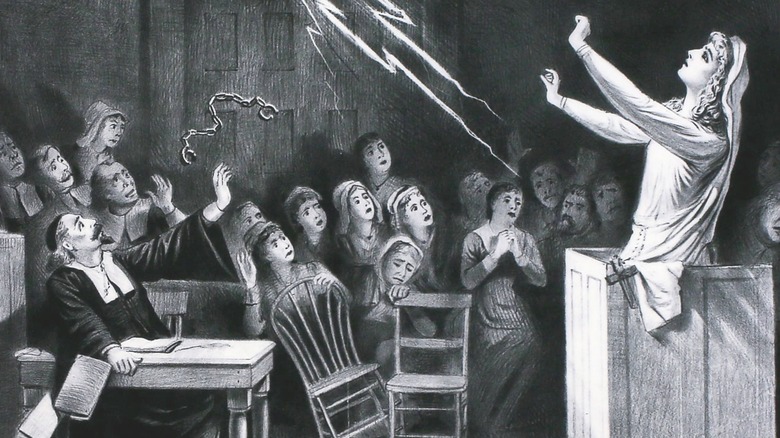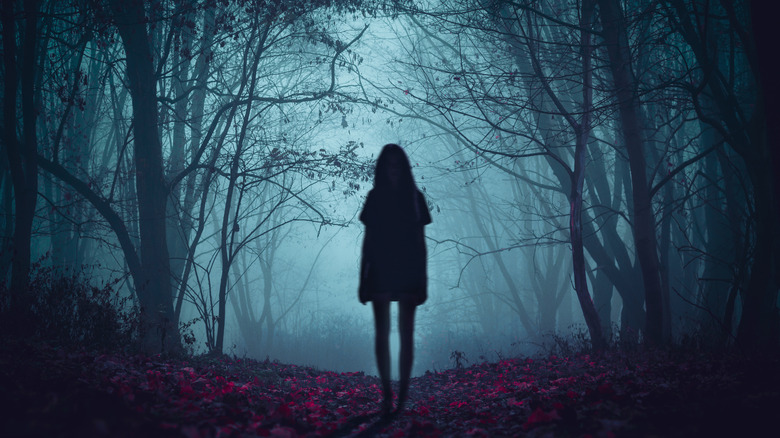Do Witch-Hunters Still Exist Today?
Witchcraft always had different meanings for each culture around the world. In premodern Western societies, it was often associated with heresy and the Devil. Between the 14th and 18th centuries, witch hunters in Europe were responsible for finding people accused of worshiping the Devil, selling their souls, and disrespecting the Catholic Church ( via Britannica). The majority of people killed by witch-hunters were women (75%), according to The Guardian.
In North America, the Salem witch trials began after a group of young girls said they were possessed by the Devil in 1692 (via History). As a result, 19 men and women were hanged, one man was pressed to death for refusing to enter a plea of innocent or guilty, and another 150 people were accused of witchcraft. In 1706, Ann Putnam Jr., who was one of those making accusations during the trials, wrote a public apology to the victims (via Famous Trials).
The witch-hunting stories have inspired countless books and movies. Although they seem to belong to the distant past, witch-hunting is still a reality in many countries.
Witch hunters still exist
The witch trials continue to happen all over the world, although they are more common in Africa. They also occur in Southeast Asia and Latin America (via Deutsche Welle). In some cultures, people believe that witches are responsible when they get sick or become wealthy. The penalty for this accusation is still as brutal as in the past.
According to National Geographic, witch-hunters use poisonous tea to kill people accused of witchcraft in Zambia, where witch-hunters killed 16 people in a few months. In Nigeria, children accused of witchcraft were burned, poisoned, and abused in 2007.
In New Guinea in the Pacific Ocean, witch-hunting became illegal in 2013 after a woman accused of witchcraft was burned alive (via The Diplomat). However, it didn't stop the witch trials completely. In 2018, a six-year-old girl was tortured, accused of witchcraft. In India, three women were accused of using witchcraft for killing two men in Gujarat (via Scientific America).
In some cultures, the rapid accumulation of money is also a sign of witchcraft. Therefore, some citizens in Nigeria were accused of witchcraft after the oil boom in the country.
Witch-hunting is still considered a global problem. As Deutsche Welle reports, August 10 has been declared a World Day against Witch Hunts.

